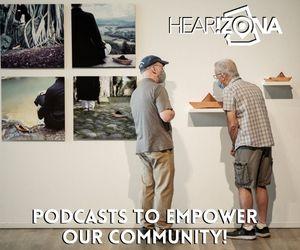Click to Listen:
The Met's Music Mixer.
American Lu Wins at Leeds;
It’s “This Week in Classical Music”, an update on what’s happening in the classical music world; I’m Randy Kinkel.
If you’ve ever heard the Met Broadcasts Saturdays on KBACH, you’ve heard some of David Frost’s work. If he does his job well, listeners shouldn’t have any idea he’s there.
Mr. Frost — a Juilliard-trained pianist who, since his late 20s, has also been a record producer, working with Renée Fleming and the Chicago Symphony Orchestra—as a producer, he has won 16 Grammy awards; and learned from his father, also a famous producer, who worked on Vladimir Horowitz’s recordings.
As a music producer for the Met Opera, he operates a soundboard on the Grand Tier level of the house that feeds broadcasts for radio, movie theater screenings, and Simulcasts. Mixing sound live at the Met is challenging because there’s no opportunity to stop or try something again.
Frost follows along with a conductor’s score and constantly adjusts several dozen faders that control levels on microphones set up onstage and throughout the orchestra pit.
Frost studies the score, flagging passages he knows will be difficult at the soundboard; By opening night, he knows the score better than some of the singers; He’s perfecting his soundboard and finding creative ways to hide microphones onstage; and he’s been negotiating with various backstage departments on mic placement.
About an hour before curtain, Frost goes down to the pit and stage to adjust the microphones. ”The challenge here,” he said, “is that people are running all over the stage.” In performance, singers can also move differently from how they did in dress rehearsals; singers can turn away from their microphones in ways that can have drastic effects on the sound. His score was full of Post-its, color-coded highlights of the text, and notes. “I’m constantly refining what I’m doing,” he said. “I’ll still think about this and get better at it.”
The 19th Leeds piano competition was won on Saturday night by Eric Lu, a 20-year-old from Boston, whose performance of Beethoven’s fourth piano concerto secured him the top place, and also the Hallé orchestra prize.
The competition, held every three years, was co-founded 55 years old ago by Dame Fanny Waterman, and launched the careers of Radu Lupu, Murray Perahia, Mitsuko Uchida and András Schiff.
In recent years, however, fewer finalists went on to make their mark as international soloists and the event felt increasingly old-fashioned. a new approach was needed.
the competition’s new directors, Paul Lewis and Adam Gatehouse, announced an ambitious reboot of every aspect of the competition. “We want to redefine what a music competition can give to young performers as well as audiences,” said Lewis.
Twenty-four finalists aged between 20 and 29 were chosen from first rounds held in April in Berlin, New York and Singapore. The second round, in Leeds in early September, whittled that number down to 10, from which five finalists were selected.
A new digital partnership with online classical music platform Medici also brought a large global audience.
Over 500,000 people in 140 different countries watched the competition on medici tv.
“Winning here is a great honour,” said Lu, who was given his prize by superstar pianist Lang Lang. “This competition has such a rich history with so many of my idols among previous winners. Beethoven’s fourth is such a miraculous piece; it was an inspiration and a joy to play.”
Every stage of the competition is available to watch at leedspiano2018.medici.tv/;
For more on these and other items, go to the website at kbaq.org; be listening every week for another update; find us on facebook and twitter; and don’t forget to vote for your top 100 most wanted and then listen to the most wanted hour, weekdays at noon with Linda Cassidy. Member supported 89-five KBACH, phoenix and HD, a service of Rio Salado College, celebrating 40 years, and Arizona State University.










